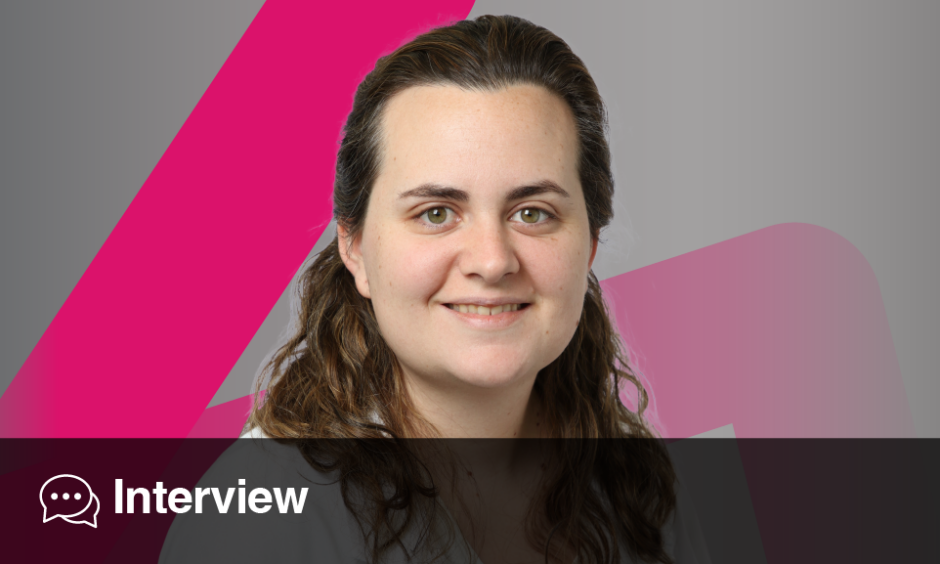Magdalena Corona de Lapuerta | Attending physician, Department of Haematology, Hospital Universitario 12 de Octubre, Madrid, Spain
In this interview, Magdalena Corona de Lapuerta, recipient of the Jian-Jian Luan Award for Lymphoma Transplant Research, discussed her career journey and research on lymphoma and immunotherapy.
![]()
Could you tell us a bit about your background and what led you to pursue a career in cancer research, specifically in the area of lymphoma and immunotherapy?
My fascination with haematology began during medical school, particularly during my clinical rotations. I was drawn to the opportunity to specialise in a field that allows for comprehensive patient management, from diagnosis to treatment. Additionally, I was captivated by the vast research possibilities that haematology offers, especially in the onco-haematology field.
During my residency, I had the opportunity to complete a 3-month rotation at Memorial Sloan Kettering Cancer Center, New York, USA, in the Adult Bone Marrow Transplantation department, under the guidance of Miguel-Angel Perales and Roni Shouval,, Memorial Sloan Kettering Cancer Center, New York, USA. This experience was incredibly enriching and made me realise that I had a great opportunity to continue learning and working with experts in a field I was already passionate about. Therefore, after finishing my residency, I decided to apply for a postdoctoral grant there.
Your recent abstract, ‘Comprehensive Genomic and Phenotypic Profiling of CD19 in Large B-Cell Lymphoma Patients Receiving CAR-T Therapy’, was recently awarded the Jian-Jian Award for Lymphoma Transplant Research. Can you explain what drew you to study CD19 and its role in large B cell lymphoma in the context of CAR-T therapy?
As I mentioned before, I have always been deeply interested in onco-haematology research, particularly in immunotherapy. This interest led me to pursue a fellowship at Memorial Sloan Kettering Cancer Center, where I focused on studying resistance mechanisms to CAR-T therapies in large B cell lymphoma.
During my time there, under the mentorship of Perales, I joined Shouval’s Precision Cellular Therapy laboratory, which investigates the mechanisms and determinants of toxicity and response to CAR-T therapy. This lab has conducted extensive work identifying factors associated with response and toxicity in patients undergoing CAR-T therapy. More importantly, it has established a multidisciplinary and international collaborative network to comprehensively study these mechanisms.
The hypothesis behind this study is straightforward; we aimed to characterise the impact of CD19 expression on the response to CD19-directed CAR-T therapy and its modulation as a resistance mechanism. However, the key and novel aspect of this abstract is the coordinated multidisciplinary collaboration that enabled a longitudinal and multi-omic characterisation of CD19 expression.
What were the key findings in your research on the genomic and phenotypic profiling of CD19 in large B cell lymphoma patients, and how do you believe these discoveries will impact the future of CAR-T therapies?
First, our study indicates that patients with large B-cell lymphoma who exhibit very low CD19 expression, both by flow cytometry and RNA sequencing, tend to have a poor response to CD19-directed CAR-T therapy.
The study also identifies an association between inflammatory signalling pathways and low CD19 expression. Alongside a low rate of genomic mutations, this suggests that the mechanisms driving CD19 downregulation are primarily epigenetic. However, resistance mechanisms appear to differ depending on whether the patient is primarily refractory to CD19-directed CAR-T therapy or experiences relapse after an initial response.
Throughout your research process, what were some of the most significant challenges you faced, and how did you overcome them?
One of the biggest challenges in this study was obtaining and analysing longitudinal samples from patients treated with CAR-T cells over more than 8 years, during which protocols have continuously evolved. Conducting a multi-omic characterisation required coordination across multiple disciplines, making the process logistically complex. However, the strong collaboration among everyone involved made it possible.
Winning the Jian-Jian Award for Lymphoma Transplant Research is a tremendous accomplishment. How do you see it influencing your future research endeavours?
Thank you. I see this award as a recognition of several years of hard work, particularly the past 2 years in which I have been deeply involved in research. One of the most valuable lessons this award has made me realise, and something I am committed to carrying forward, is the importance of multidisciplinary collaboration and strong communication between clinical and basic research. Science, and ultimately patient care, benefits tremendously from this approach, as reflected in this award.
I am also especially grateful to the mentors who have guided me throughout my career. Their support and patience have been invaluable, shaping both my growth as a researcher and my perspective on mentorship. This experience has greatly influenced me, and I hope to pay it forward by mentoring and supporting others in the same way.
Looking ahead, what are the next steps in your research on CAR-T therapy and lymphoma? Are there any upcoming projects or innovations you’re particularly excited about, and how do you hope to build on your current findings?
I recently completed my fellowship at MSKCC and have just started working at my new institution, Hospital Universitario 12 de Octubre in Madrid, Spain. We are launching several new projects with the goal of continuing the research line focused on resistance mechanisms to immunotherapy.
Additionally, we hope to initiate an international collaboration with Shouval to further explore the epigenetic mechanisms of CD19 modulation and how they influence resistance to CAR-T therapy. By integrating clinical, genomic, and functional data, we aim to identify potential biomarkers that could help predict response and guide treatment strategies for patients receiving CAR-T therapy.







